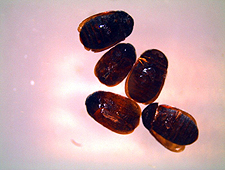In keeping with the spirit of July 4th, Dallas-based business & innovation law firm CHESTER pllc is “declaring independence … from paper.”
The Dallas-based global business & innovation law firm of CHESTER pllc is pleased to announce that it will begin to exclusively (to the extent possible) use e-signatures starting July 4, 2013. These e-signatures will be used on all firm documents.
For the past several months, the firm has been beta testing various services, and chose July 4th to formally adopt an e-signature based system.
The firm has been low-paper since its inception, and has evaluated new paperless technologies once they have become available and been proven reliable. Hosted servers, scan and shred policies, paperless invoicing, and other similar paper-free options have been adopted over the years. Using e-signatures will further transform the way the company handles documents that need to be signed and move it one step closer to become a truly “paperless” law firm.
Jim Chester, CHESTER pllc’s CEO and founding principal, says, “The practice of law is constantly changing, and we are proud to be pioneers in that regard. We seek to offer an alternative to large, expensive firms by providing quality legal services for the core legal issues faced by technology and innovation-based clients at a reasonable cost. Adopting state-of-the-art technology maximizes the quality of service that we can provide to our clients and helps us cut costs, which translate into savings that are passed onto our clients.”
“Going paperless helps us reduce costs, space, and our environmental footprint, while creating a document control system that is reliable, searchable, and scalable” said the attorney.
In addition to its adoption of cutting-edge paper-reduction technologies, CHESTER pllc also utilizes cloud-based servers, hosted phone service, AppleTV based presentation screens that can beam wirelessly from Macbook Airs. Breaking from traditional law practices, CHESTER pllc keeps all client records in a digital format, which makes files easy to sort and search, and ultimately maximizes efficiency.
This step towards becoming a ‘paperless’ law firm reinforces the CHESTER pllc mantra of being ‘innovative legal counsel for innovative companies,” Chester adds.
CHESTER pllc is a Dallas, Texas law firm providing comprehensive legal services to innovation-based companies doing business in the US, around the world, and on the web. Its mission (and passion) is helping entrepreneurs and emerging companies solve problems and protect their interests. CHESTER pllc delivers value by providing business-savvy, cost-effective solutions to legal challenges. The firm offers a wide array of business legal solutions, such as business entity formation (LLCs, corporations, etc.), trademarks and other intellectual property, technology transactions, contracts, ecommerce and dispute resolution. Additional information about the firm and its attorneys may be found at www.chester-law.com.

